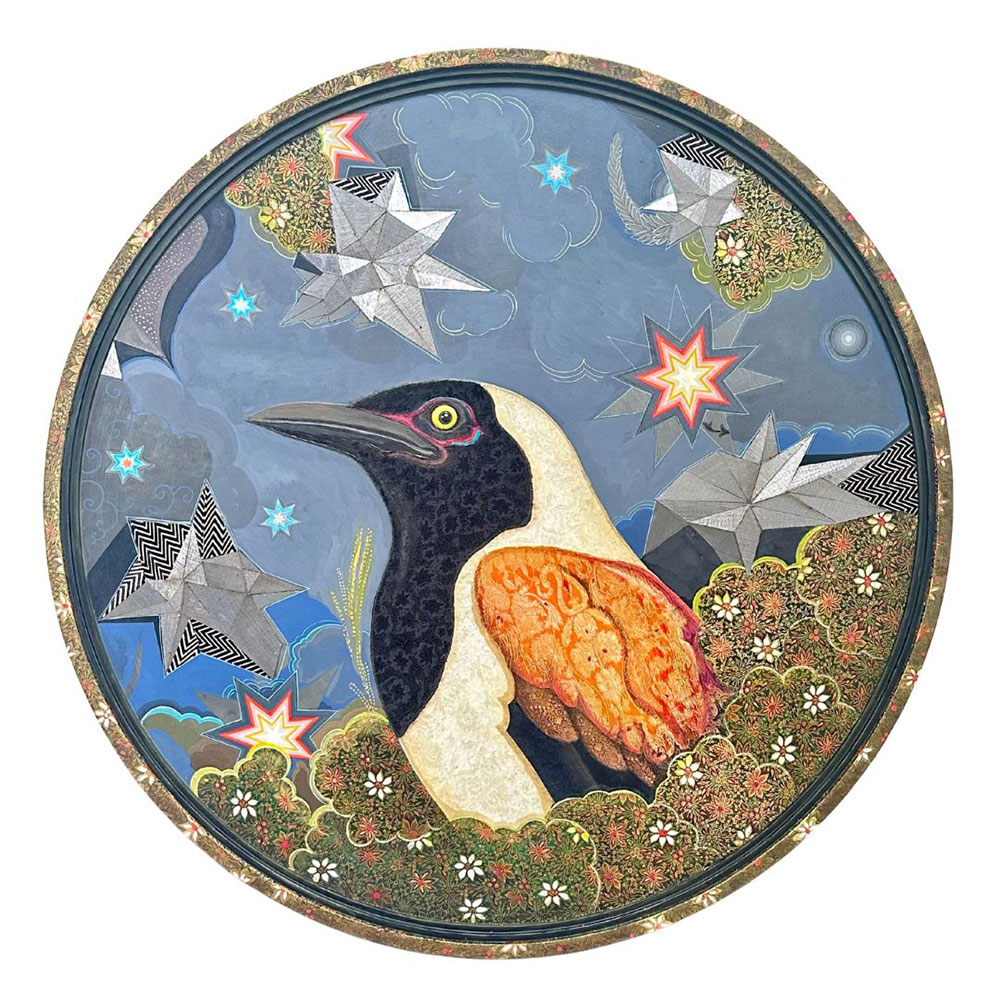(b. 1970)
Jagannath Panda (b. 1970) is a leading contemporary Indian artist whose multidisciplinary practice explores the complex interplays between mythology, urbanisation, and ecological consciousness. Based in Gurugram, Panda creates poignant visual narratives through sculpture, painting, and mixed media installations that merge traditional Indian aesthetics with contemporary artistic language. His works reflect the tensions and hopes of modern India—its rapidly transforming cities, endangered biodiversity, and forgotten folklore—inviting viewers into a layered world of symbolism and socio-political reflection.
Panda earned his M.A. in Sculpture from the Royal College of Art, London in 2002, following an M.A. from M.S. University, Baroda (1994) and a B.F.A. from B.K. College of Art & Crafts, Bhubaneswar (1991). He also served as a Visiting Research Fellow at Fukuoka University of Education, Japan. His contributions have been widely recognized through awards such as the National Academy Award (Lalit Kala Akademi, 1995), the Alice Boner Memorial Award, and international scholarships from Inlaks and Charles Wallace Trust.
Over the past three decades, Panda has held numerous acclaimed solo exhibitions, including Echoes of the Unfathomed World (2023), Crystal Cities (2017–18), and Metropolis of Mirage (2011). His works have been featured in significant museum exhibitions at the Mori Art Museum (Tokyo), MAXXI (Rome), Asian Art Museum (San Francisco and Fukuoka), and the National Gallery of Modern Art (New Delhi).
In addition to his artistic career, Panda is a committed curator and arts educator. He is the founder of the Utsha Foundation for Contemporary Art in Bhubaneswar, which supports experimental practices and emerging artists across India. His artistic voice continues to inspire a critical discourse around cultural identity, urban fragility, and environmental resilience.

